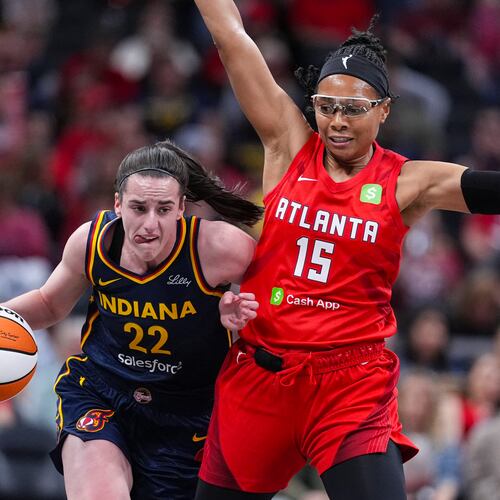Three Marietta football players can appeal their eligibility with the Georgia High School Association a second time, a superior Court judge in Cobb County ruled on Monday.
That doesn’t mean that Rashad Torrence, Dawson Ellington or Jalen Hardy - all major college prospects - will win their cases with the GHSA, which hasn’t set a date for the re-hearing.
But it does mean they’ll have a chance to make arguments on their own behalf. The court ruled that the three didn’t get a fair hearing earlier this month because they were represented at the first GHSA appeals hearing by Marietta High School and not themselves or their families, who claim the school didn’t have all the facts.
It’s an interesting human-interest story. The three claim they did not know they were breaking rules and were led to believe by Marietta High School that they were legal. That’s a reasonable claim.
Should they be eligible?
Here are some notes to consider before making a decision:
*The three players are ineligible because they did not make the required bona-fide moves in residency required by GHSA rules. Those rules do have exceptions (read on), but they’re rare. The rules are designed to discourage student-athletes from transferring strictly for athletic reasons. That’s the will of the GHSA membership (the 450+ member schools), which believes that’s best for competitive balance. Survey high school football coaches, and you’ll find most of them wanting even stricter rules for transfers.
*Hardy is a senior who, short of winning an appeal, will never play high school football again. Torrence and Ellington are juniors. Their penalties could affect their status as college recruits. They are not eligible at any GHSA school, not just Marietta.
*Torrence and Ellington played for Marietta last season after transferring from other schools. Hardy played elsewhere last season and transferred in the winter and played a spring sport at Marietta.
*The GHSA’s ruling on their eligibility came after the Marietta sports seasons were complete. Marietta had to forfeit its eight football victories from 2017 and all of its victories in track and field.
*Torrence and Ellington say they were told by Marietta that they were eligible because their parents worked in the Marietta school system. That doesn't matter, according to GHSA rules. The players would've been eligible had their parents been employed at the high school, but not other schools in the system. Marietta filed inaccurate transfer documents to the GHSA stating the parents worked at the high school. They did not.
*Hardy’s case is a little different. He and his family believe that that made a bona-fide move and that Marietta did not argue their case accurately at the GHSA appeal hearing earlier this month. Hardy’s family says that it owns a home in the Marietta district.
*The GHSA is following its rules and not making any subjective judgments. Marietta admits wrongdoing.
Should the GHSA keep them out?
That’s what GHSA rules call for. The GHSA membership wants restricted eligibility. Some would say that the parents and players are responsible for knowing GHSA rules. They might even say that high schools should not be having discussions with student-athletes and their families about how to become eligible without sitting out a season, that this is undue influence (ie, recruiting).
Or should the GHSA let them play?
They played their seasons in good faith. They did not intentionally break rules. Marietta has already been punished with forfeits and a fine. The GHSA has not found or asserted that Marietta broke any undue influence rules in the players’ transfers.
The guess here is that the GHSA will find Torrence and Ellington ineligible again. Hardy, whose situation is different, might win an appeal if he provides new information.
But with those who played under ‘’false pretenses,’’ as the GHSA put it, won’t be allowed to play, even if wasn’t their fault. If you move, you sit.
As long as that’s the will of the GHSA membership, that’s how it’s going to work.
About the Author
Keep Reading
The Latest
Featured

